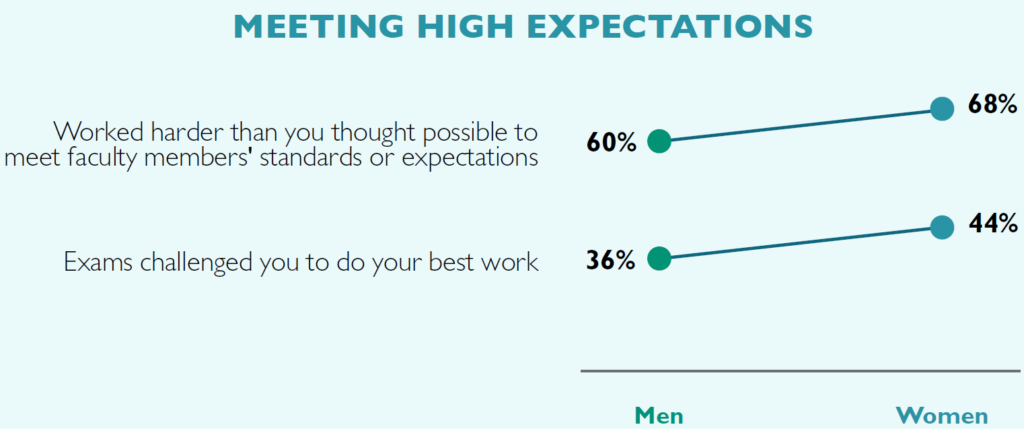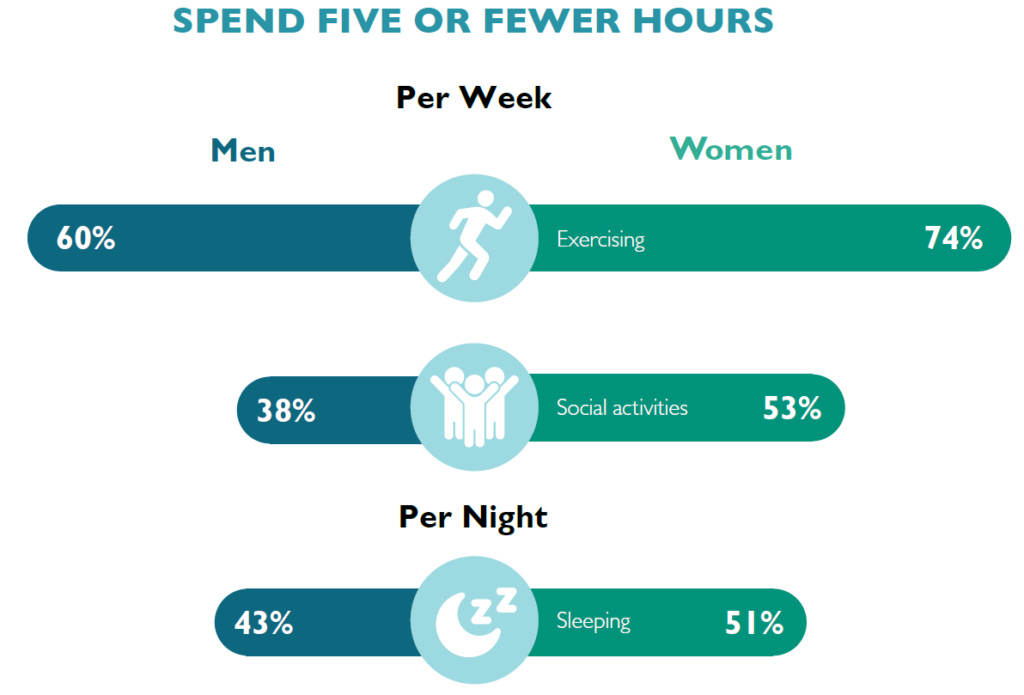The Troubling Secret to Success
What is the secret to the success of female law students? They enter law school with fewer resources and amass significant burdens once enrolled, but perform at equal or higher levels than their male peers along many metrics. The data suggest one clear answer: women law students work extraordinarily hard, juggling their various personal and academic responsibilities at the expense of self-care. While most students work hard to meet the high expectations of their professors, women students report sustained effort at higher levels than their male peers. A full 68% of women note that they “Often” or “Very Often” worked harder than they thought they could to meet faculty members’ standards or expectations, compared to 60% of men. Similarly, higher percentages of female students than male rise to the challenge of submitting their best work on exams. LSSSE respondents were asked to report “the extent to which your examinations during the current school year have challenged you to do your best work” on a 7-point scale. Remarkably, 44% of women report the highest level of engagement (a 7 out of 7) as compared to 36% of men. Again, these findings of hardworking women are consistent across race/ethnicity.

Tragically, the hard work that women dedicate to enabling their success comes at a significant cost. The tradeoff is that women are much less likely than men to engage in important social, leisure, and self-care activities. Each of these findings is consistent across racial/ethnic groups when comparing women with men. For instance, 41% of women spend zero hours per week reading for pleasure, compared to 25% of men. Similarly, the overwhelming majority of women law students find little time for physical fitness, with 74% reporting that they exercise no more than 5 hours a week (along with 60% of men). Expanding this concept to other leisure activities—including watching TV, relaxing, or even partying—does not improve this gender disparity. More than half (53%) of women law students spend five or fewer hours per week engaged in any of these social activities, compared to just over a third (38%) of men. Furthermore, half (51%) of women report sleeping five or fewer hours per night in an average week, along with 43% of men. In the scramble to get ahead academically, women are overlooking downtime; they are prioritizing their academic success at the expense of their own wellbeing. Such limited opportunities to disconnect from schoolwork, engage in physical fitness, rest, relax, and socialize with others can have serious implications for the long-term physical and mental health of women law students.

For more in-depth analysis about gender disparities in legal education, you can read the entire LSSSE 2019 Annual Results The Cost of Women’s Success (pdf) on our website or contact us.
